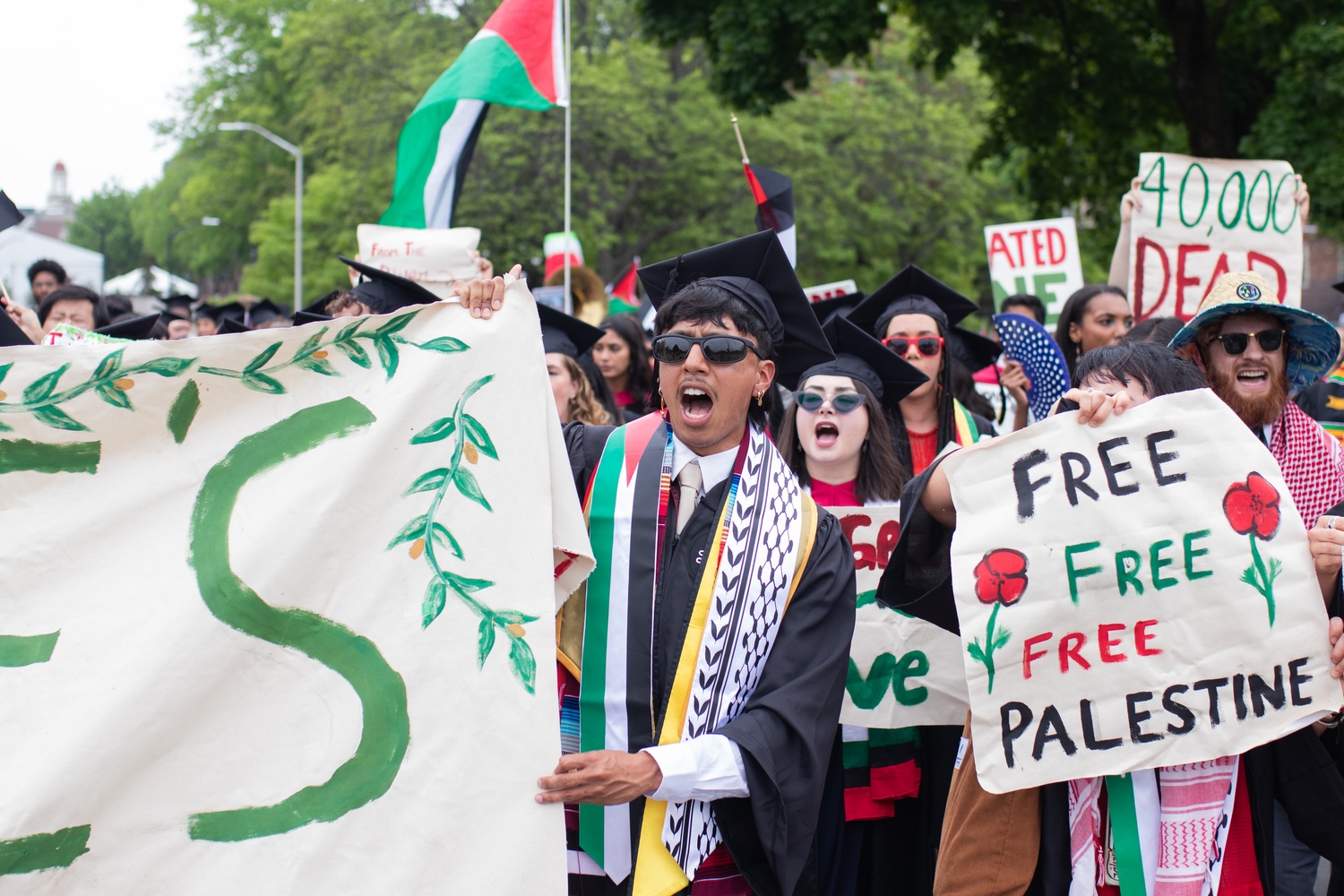Graduation is a milestone for many Americans, symbolizing the achievement of academic goals and the beginning of new opportunities. However, for some college students who engaged in pro-Palestinian protests, their activism has led to significant consequences, including having their degrees withheld. These students now face an uncertain future, caught in a limbo of disciplinary investigations and appeals.
Activism Leads to Degrees Withheld
Youssef Hasweh, a student at the University of Chicago, is among those affected. Hasweh and three other students participated in a protest encampment that led to his degree being withheld pending an investigation. “Four years and just a criminal record, nothing else,” Hasweh lamented. Despite the setback, he stands by his actions, emphasizing the importance of free speech and the plight of Palestinians.
The situation is not unique to the University of Chicago. Students across various universities have faced arrests, expulsions, and suspensions for their involvement in pro-Palestinian protests. As they await the results of investigations, these students are preparing for a future where they might be burdened with student debt without the benefit of a degree.
Impact on Future Prospects
The consequences of these actions are severe. Devron Burks, a student at Vanderbilt University, was arrested and expelled following a campus building occupation. Burks, who uses they/them pronouns, expressed no regret for their participation, stating, “I have these punishments and have to work through this stress, but it’s incomparable to the plight of Palestinians.”
Burks’ expulsion has led to significant personal and professional challenges. Barred from campus, they have been evicted from their apartment and have had to rely on temporary housing. Furthermore, Burks had a job offer rescinded due to the disciplinary actions taken against them. “This has been the most stressful time,” Burks shared, highlighting the profound impact on their life.
University Responses and Disciplinary Measures
Universities have cited various reasons for withholding degrees and taking disciplinary actions. At the University of Chicago, Hasweh received an email indicating his degree would not be conferred due to his involvement in a protest that disrupted campus activities. Similarly, Harvard University has barred several students from graduating due to their participation in pro-Palestinian demonstrations. One of these students, Syd Sanders expressed shock at the university’s decision, calling it a deterrent against free speech. Princeton University also withheld the degrees of two seniors pending an investigation into a protest at an alumni event. Khari Franklin, one of the students, noted the surreal nature of the situation, expressing disbelief at the university’s drastic measures.
The Broader Implications of Student Activism
The disciplinary actions extend beyond individual universities. At Columbia University, over 30 students received interim suspensions following protests, and administrators at New College in Florida warned that students who disrupted their commencement ceremony could face similar consequences. The institutions maintain that disruptive activities are not tolerated while they support free speech. Despite the severe repercussions, students like Hasweh remain resolute. “Even if I don’t get my degree, I’d do it a thousand times over,” he affirmed, underscoring their commitment to the cause.

The intersection of campus activism and university disciplinary actions raises important questions about the balance between free speech and institutional order. As these students navigate the challenging consequences of their activism, their experiences highlight the enduring impact of standing up for one’s beliefs, even in the face of significant personal and academic sacrifices.
